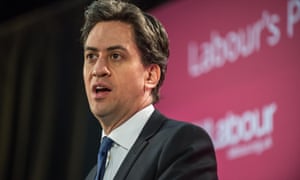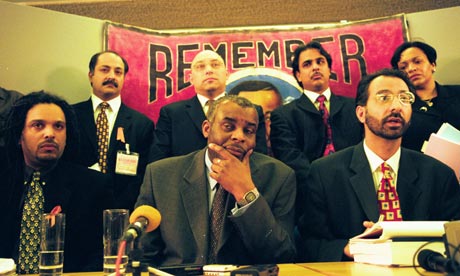Andy Martin in The Independent

God as depicted in Michelangelo's fresco ‘The Creation of the Heavenly Bodies’ in the Sistine Chapel Michelangelo
Here’s a thing I bet not too many people know. Where are the new BBC offices in New York? Some may know the old location – past that neoclassical main post office in Manhattan, not far from the Empire State Building, going down towards the Hudson on 8th Avenue. But now we have brand new offices, with lots of glass and mind-numbing security. And they can be found on Liberty Street, just across West Street from Ground Zero. The site, in other words, of what was the Twin Towers. And therefore of 9/11. I’m living in Harlem so I went all the way downtown on the “A” train the other day to have a conversation with Rory Sutherland in London, who is omniscient in matters of marketing and advertising.

There were 19 hijackers involved in 9/11, where Ground Zero now marks the World Trade Centre, but only one person was involved in the Westminster attack (Rex)
I was reminded as I came out again and gazed up at the imposing mass of the Freedom Tower, the top of which vanished into the mist, that just the week before I was going across Westminster Bridge, in the direction of the Houses of Parliament. It struck me, thinking in terms of sheer numbers, that over 15 years and several wars later, we have scaled down the damage from 19 highly organised hijackers in the 2001 attacks on America to one quasi-lone wolf this month in Westminster. But that it is also going to be practically impossible to eliminate random out-of-the-blue attacks like this one.
But I also had the feeling, probably shared by most people who were alive but not directly caught up in either Westminster or the Twin Towers back in 2001: there but for the grace of God go I. That, I thought, could have been me: the “falling man” jumping out of the 100th floor or the woman leaping off the bridge into the Thames. In other words, I was identifying entirely with the victims. If I wandered over to the 9/11 memorial I knew that I could see several thousand names recorded there for posterity. Those who died.
So I am not surprised that nearly everything that has been written (in English) in the days since the Westminster killings has been similarly slanted. “We must stand together” and all that. But it occurs to me now that “we” (whoever that may be) need to make more of an effort to get into the mind of the perpetrators and see the world from their point of view. Because it isn’t that difficult. You don’t have to be a Quranic scholar. Khalid Masood wasn’t. He was born, after all, Adrian Elms, and brought up in Tunbridge Wells (where my parents lived towards the end of their lives). He was one of “us”.
This second-thoughts moment was inspired in part by having lunch with thriller writer Lee Child, creator of the immortal Jack Reacher. I wrote a whole book which was about looking over his shoulder while he wrote one of his books (Make Me). He said, “You had one good thing in your book.” “Really?” says I. “What was that then?” “It was that bit where you call me ‘an evil mastermind bastard’. That has made me think a bit.”
When he finally worked out what was going on in “Mother’s Rest”, his sinister small American town, and gave me the big reveal, I had to point out the obvious, namely that he, the author, was just as much the bad guys of his narrative as the hero. He was the one who had dreamed up this truly evil plot. No one else. Those “hog farmers”, who were in fact something a lot worse than hog farmers, were his invention. Lee Child was shocked. Because up until that point he had been going along with the assumption of all fans that he is in fact Jack Reacher. He saw himself as the hero of his own story.

There were 19 hijackers involved in 9/11, where Ground Zero now marks the World Trade Centre, but only one person was involved in the Westminster attack (PA)
I only mention this because it strikes me that this “we are the good guys” mentality is so widespread and yet not in the least justified. Probably the most powerful case for saying, from a New York point of view, that we are the good guys was provided by René Girard, a French philosopher who became a fixture at Stanford, on the West Coast (dying in 2015). His name came up in the conversation with Rory Sutherland because he was taken up by Silicon Valley marketing moguls on account of his theory of “mimetic desire”. All of our desires, Girard would say, are mediated. They are not autonomous, but learnt, acquired, “imitated”. Therefore, they can be manufactured or re-engineered or shifted in the direction of eg buying a new smartphone or whatever. It is the key to all marketing. But Girard also took the view, more controversially, that Christianity was superior to all other religions. More advanced. More sympathetic. Morally ahead of the field.
And he also explains why it is that religion and violence are so intimately related. I know the Dalai Lama doesn’t agree. He reckons that there is no such thing as a “Muslim terrorist” or a “Buddhist terrorist” because as soon as you take up violence you are abandoning the peaceful imperatives of religion. Which is all about tolerance and sweetness and light. Oh no it isn’t, says Girard, in Violence and the Sacred. Taking a long evolutionary and anthropological view, Girard argues that sacrifice has been formative in the development of homo sapiens. Specifically, the scapegoat. We – the majority – resolve our internal divisions and strife by picking on a sacrificial victim. She/he/it is thrown to the wolves in order to overcome conflict. Greater violence is averted by virtue of some smaller but significant act of violence. All hail the Almighty who therefore deigns to spare us further suffering.
In other words, human history is dominated by the scapegoat mentality. Here I have no argument with Girard. Least of all in the United States right now, where the Scapegoater-in-chief occupies the White House. But Girard goes on to argue that Christianity is superior because (a) it agrees with him that all history is about scapegoats and (b) it incorporates this insight into the Passion narrative itself. Jesus Christ was required to become a scapegoat and thereby save humankind. But by the same token Christianity is a critique of scapegoating and enables us to get beyond it. And Girard even neatly takes comfort from the anti-Christ philosopher Nietzsche, who denounced Christianity on account of it being too soft-hearted and sentimental. Cool argument. The only problem is that it’s completely wrong.
I’ve recently been reading Harold Bloom’s analysis of the Bible in The Shadow of a Great Rock. He reminds us, if we needed reminding, that the Yahweh of the Old Testament is a wrathful freak of arbitrariness. A monstrous and unpredictable kind of god, perhaps partly because he contains a whole bunch of other lesser gods that preceded him in Mesopotamian history. So naturally he gets particularly annoyed by talk of rival gods and threatens to do very bad things to anyone who worships Baal or whoever.

‘Agnus-Dei: The Scapegoat’ by James Tissot, painted between 1886 and 1894
Equally, if we fast forward to the very end of the Bible (ta biblia, the little books, all bundled together) we will find a lot of rabid talk about damnation and hellfire and apocalypse and the rapture and the Beast. If I remember right George Bush Jr was a great fan of the rapture, and possibly for all I know Tony Blair likewise, while they were on their knees praying together, and looked forward to the day when all true believers would be spirited off to heaven leaving the other deluded, benighted fools behind. Christianity ticks all the boxes of extreme craziness that put it right up there with the other patriarchal sky-god religions, Judaism and Islam.
But even if it were just the passion narrative, this is still a problem for the future of humankind because it suggests that scapegoating really works. It will save us from evil. “Us” being the operative word here. Because this is the argument that every “true” religion repeats over and over again, even when it appears to be saying (like the Dalai Lama) extremely nice and tolerant things: “we” are the just and the good and the saved, and “they” aren’t. There are believers and there are infidels. Insiders and outsiders (Frank Kermode makes this the crux of his study of Mark’s gospel, The Genesis of Secrecy, dedicated “To Those Outside”). Christianity never really got over the idea of the Chosen People and the Promised Land. Girard is only exemplifying and reiterating the Christian belief in their own (as the Americans used to say while annihilating the 500 nations) “manifest destiny”.
I find myself more on the side of Brigitte Bardot than René Girard. Once mythified by Roger Vadim in And God Created Woman, she is now unfairly caricatured as an Islamophobic fascist fellow-traveller. Whereas she would, I think, point out that, in terms of sacred texts, the problem begins right back in the book of Genesis, “in the beginning”, when God says “Let us make man in our image, after our likeness: and let them have dominion over the fish of the sea, and over the fowl of the air, and over the cattle, and over all the earth, and over every creeping thing that creepeth upon the earth”. This “dominion” idea, of humans over every other entity, just like God over humans, and man over woman, is a stupid yet corrosive binary opposition that flies in the face of our whole evolutionary history.
This holier-than-thou attitude was best summed up for me in a little pamphlet a couple of besuited evangelists once put in my hand. It contained a cartoon of the world. This is what the world looks like (in their view): there are two cliffs, with a bottomless abyss between them. On the right-hand cliff we have a nice little family of well-dressed humans, man and wife and a couple of kids (all white by the way) standing outside their neat little house, with a gleaming car parked in the driveway. On the left-hand cliff we see a bunch of dumb animals, goats and sheep and cows mainly, gazing sheepishly across at the right-hand cliff, with a kind of awe and respect.
“We” are over here, “they” are over there. Us and them. “They are animals”. How many times have we heard that recently? It’s completely insane and yet a legitimate interpretation of the Bible. This is the real problem of the sky-god religions. It’s not that they are too transcendental; they are too humanist. Too anthropocentric. They just think too highly of human beings.
I’ve become an anti-humanist. I am not going to say “Je suis Charlie”. Or (least of all) “I am Khalid Masood“ either. I want to say: I am an animal. And not be ashamed of it. Which is why, when I die, I am not going to heaven. I want to be eaten by a bear. Or possibly wolves. Or creeping things that creepeth. Or even, who knows, if they are up for it, those poor old goats that we are always sacrificing.








 Shouting at players: Satisfying? Yes. Effective? No © AFP
Shouting at players: Satisfying? Yes. Effective? No © AFP
